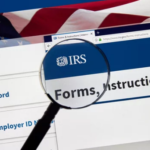The IRS already has a lot of information about your financial accounts. If required, they can get more information about your bank accounts and funds present in your accounts. However, IRS receives most of the information from the following sources:
- Your information statements, such as Forms W-2, Form 1099 that is made on your social security number.
- Your filed tax returns.
- From Third parties such as Social Security Administration.
Moreover, Banks are obliged to report IRS:
- When you have a balance in your account that gets you more than $10 of interest over a year; your bank reports it to the IRS on Form 1099-INT.
- When you have an investment account; the IRS gets this information in dividend and stock sales reporting on Form 1099-DIV and 1099-B.
- When you have an IRA, the IRS knows about it through Form 5498.
- When you have many transactions on a merchant account, the IRS knows about it through Form 1099-K.
- When you have deposited more than $10,000 cash in your account, as per Currency and Foreign Transactions Reporting Act, banks will report it to the IRS.
How can the IRS get your financial information?
Contents
Some circumstances can urge the IRS to know your income details and total funds present in your account. They take into account specific situations and determine if you need an audit or not. Here are the particular ways through which they can get a clue of your incomes:
- During an audit, an IRS revenue agent or revenue officer may want to inquire more about your financial information. They may want to know the exact transactions or accounts that you haven’t shown. At first, they would ask you to provide the records, and if you don’t cooperate, they can get the details from your bank.
The IRS can request the bank to reveal all of your bank account deposit activity to get complete information about the source of the deposits.
- If you are running an online business that involves online transactions and has not reported your income from this source. Your website activity can provide the IRS with leading information about your selling and the average amount you earn.
- The IRD also receives copies of your income reporting statements. IRS compares your income statements with your tax return to know any unreported income sources. If there is a source that you haven’t reported, the IRS can get its clue.
- If you are self-employed, make taxable income, take large deductions for various expenses, and haven’t reported it yet, the IRS can get a clue about it. The IRS will compare your income and profit ratios with similar businesses and ask you plenty of questions.
- IRS may run a T-account analysis to compare sources of cash and the total expenditures. If there is an imbalance of $10,000 or more and you don’t have satisfactory answers, the IRS may start a more in-depth audit.
When to report to the IRS?
If you own a business and receive a cash payment of more than $10,000, you must report it through Form 8300 that will help the agencies get enough information about your transaction.
Instead, if you have deposited cash less than $10,000, you don’t have to report. However, if you make multiple payments in a period of 12 months and the moment the amount exceeds $10,000, your countdown of 15 days to report your earnings starts.
➡LEARN MORE: If I have a Payment Plan with the IRS will they take my refund?
How can you find what information the IRS has about your accounts?
If you want to know how much information the IRS has about your financial accounts, you can order your wage and income transcript from the IRS. This transcript will show you most of the information that the IRS has about your accounts.




